Sep 22 2016.
views 1895The Importance Of Water Safety
There have been an increasing amount of drowning incidents in the recent past; even a case of 5 Sri Lankan boys drowning in the UK at a beach. The Drowning Prevention Report of 2014 states that drowning accounts for over 850 deaths each year in our country and more than 500,000 in the world. Open water environments such as beaches, lakes, rivers and reservoirs/tanks can be hazardous, especially for untrained and inexperienced local and foreign visitors to these environments. At beaches, currents in the ocean can result in unskilled swimmers being taken away from the shore and in many cases, lead to a drowning death.
The Life Saving Association of Sri Lanka engages in improving drowning prevention activities and lifesaving services in Sri Lanka. “Our strategy is to make drowning prevention activities more widespread. We are working closely with both government and nongovernment organizations and at multiple socioeconomic levels in the community to address the issue of drowning. Our work ranges from providing internationally recognised lifesaving training to raising awareness of water safety issues within rural communities.”
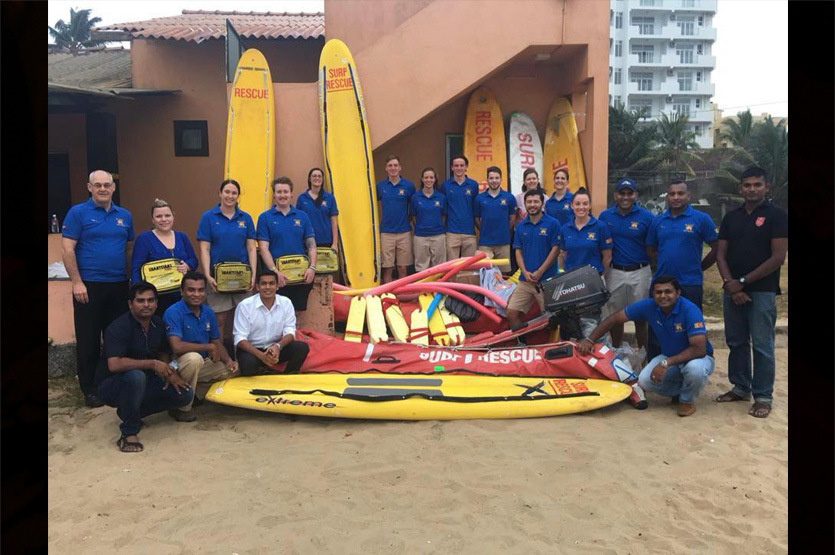
“Our main objective is to reduce drowning and water related accidents both in onshore and offshore within the country. Till to date, our records indicates that more than 4000 lives have been saved assuring a second chance of living.”
Life Online spoke to Mr. Asanka Nanayakkara, the secretary of the Life Saving Association of Sri Lanka.
What are the main causes for drowning?
According to the report, alcohol consumption around water, lack of life jacket wear on boats, lack of supervision, lack of water safety skills and knowledge, flooding from monsoonal rainfall, uncovered or unprotected wells and reservoirs/tanks.
Do you have to know to swim to be safe in water?
Water is dangerous for anyone if they can’t swim. It depends on person to person and situation to situation. For an example a small pond or a commode could be dangerous for a small kid. But if you are unsure about your swimming ability the best thing is go up to your hip level. If you are good at swimming you can go up to your shoulder level. If you are new to the place best thing is not to swim or get into the water without checking the surroundings. Remember even if you are just dipping your feet into the water, if the current is strong it has the ability to drag you away.
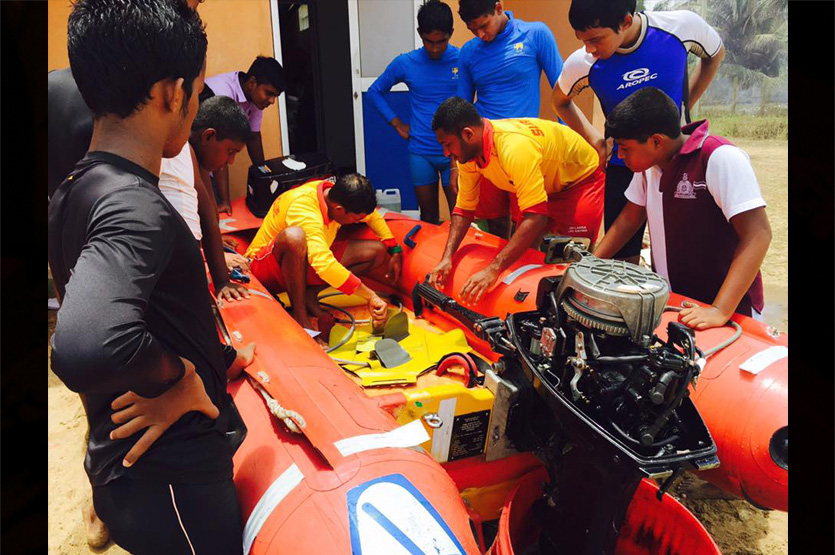
If you get caught to a current what do you do?
You can’t fight with the current, so don’t ever try to do that. It will only drag you further away or under water. First thing to do is not panic, this can be difficult for most of us. But it is very important that you don’t panic. Do not waste your energy. Try and do the Back Stroke or Survival Float or shout for help.
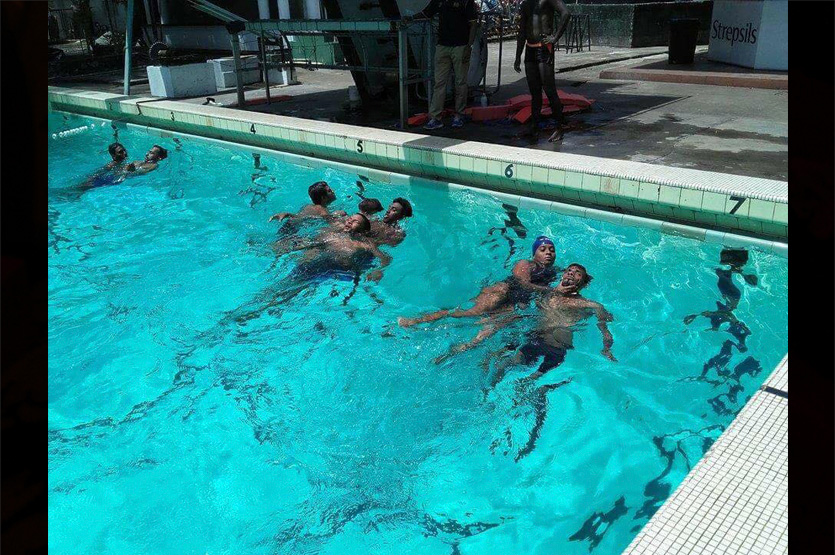
Some basic tips on water safety:
· Always swim in areas or places where there are life guards.
· Respond to the flags. The yellow flag indicates that you have to be very careful in those conditions and the red means don’t get in at all.
· Do not enter into the water after consuming alcohol.
· Better to avoid water after a heavy meal. Neither should you enter the water in hunger or an empty stomach.
· Don’t go out swimming alone, always go with someone else.
· If you have a pool or a pond at home build a fence around it so that it takes away the risk of children falling in.
· Don’t dive in head first as the water maybe shallow. Always enter with your feet first.
· Always wear a life jacket when going on a boat ride even if you know how to swim.
· Get out of the water immediately if you hear thunder.
· Always call a lifeguard if you see someone in trouble. There have been many deaths reported from people going in to save someone else.
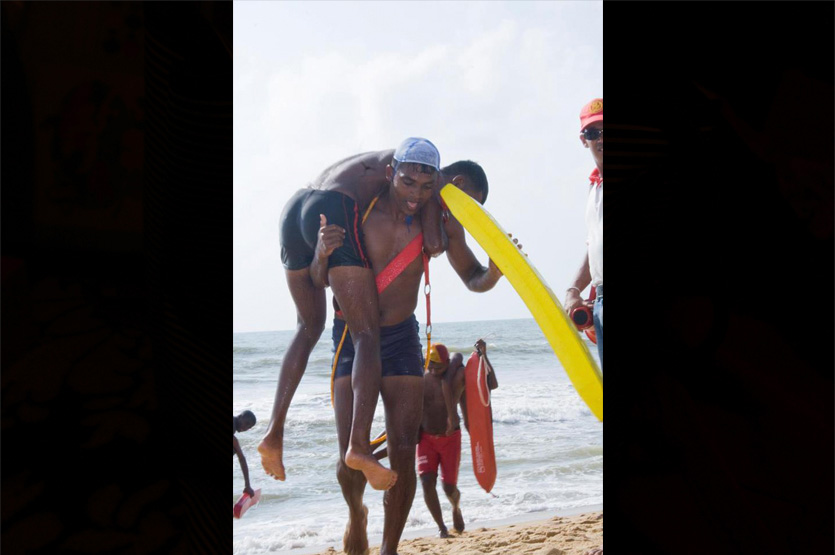
The need for lifesaving services has significantly increased in recent years in Sri Lanka. This is due in most part to the end of the civil war in 2009, which has encouraged local communities and tourists alike to travel more extensively. This has led to a need to equip more Sri Lankans with Lifesaving skills. Teaching lifesaving skills is a proven drowning prevention action, and persons trained can help prevent a drowning death. The more people that are trained in lifesaving skills, the greater the chance of lives being saved from drowning. The Life Saving Association of Sri Lanka conducts training programmes to equip individuals with CPR, First Aid, pool lifeguard training and surf lifeguard training skills.
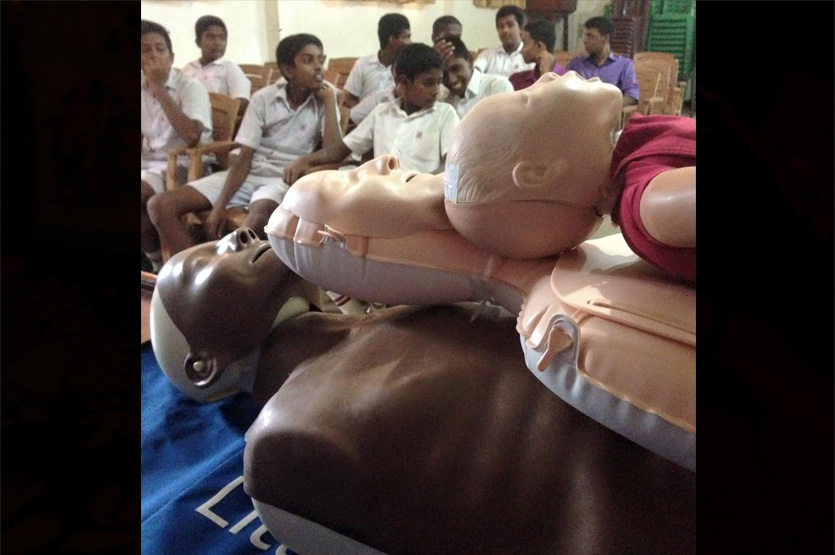
They are situated at No: 21/21, Sri Dharmapala Road, Mount Lavinia. And can be contacted through email on [email protected] or you can call them on 0777277747. You can also check out their Facebook page www.facebook.com/Life-Saving-Association-of-Sri-Lanka.
0 Comments